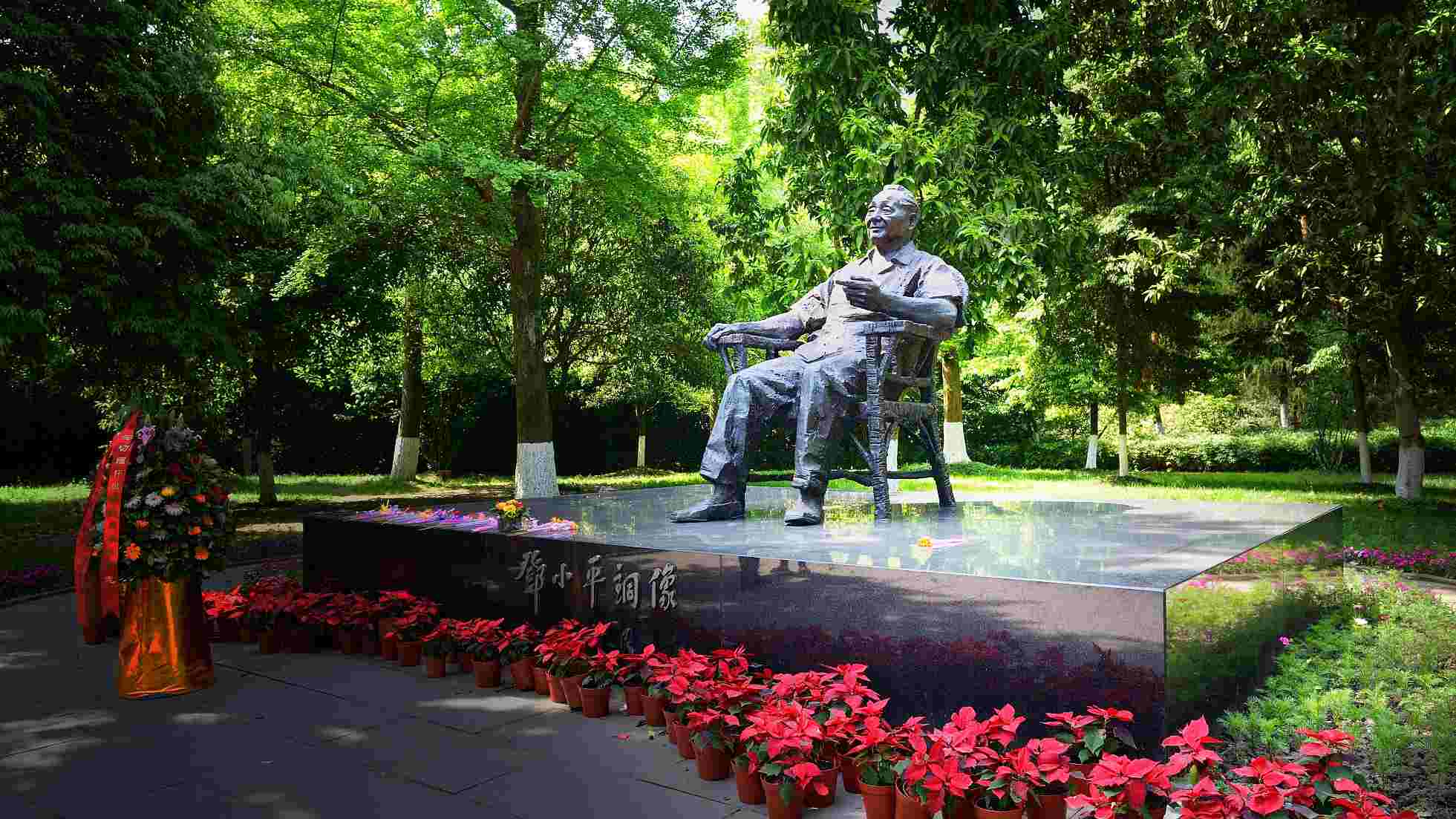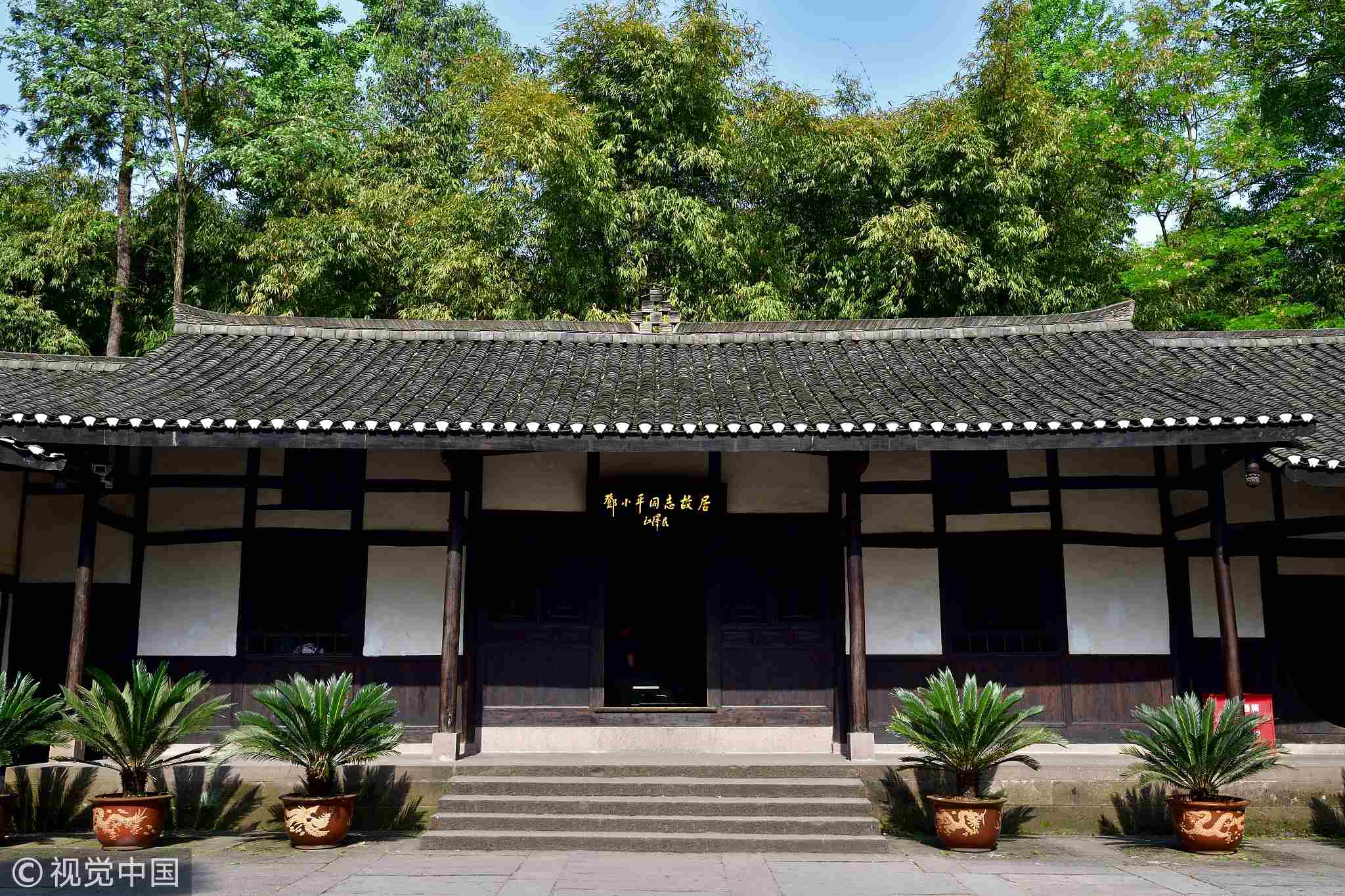
Travel
11:57, 10-Oct-2018
Deng's hometown inspires both Chinese and foreigners
Updated
11:01, 13-Oct-2018
CGTN

Guang'an, birthplace of China's late leader Deng Xiaoping, has become a source of inspiration not only for native Chinese but also for others who visit it to study his family background and link it to his sweeping opening-up and reform policies that transformed China into a global economic powerhouse.
"Foreign scholars also come here to seek inspiration from Deng's reformist vision and ideology," said Li Xing, business section chief of the Guang'an Administrative Bureau of Deng Xiaoping's hometown.
They visit Deng's home to pay their respects to his great contribution and seek to understand how his outstanding ideas were formed by his family background and Chinese rural life. They attend seminars on Deng's works, childhood and experiences, which are organized almost on a daily basis.
Annually, around 3 million people visit Deng's hometown, located in the suburbs of Guang'an City in Sichuan Province. It has been recognized as a national Grade AAAAA tourist site, integrating Red tourism, eco-tourism, ancient town tourism and rural recreation. It also serves as the model site for patriotic and corruption prevention education. The scenic area has over 20 important activity sites related to Deng's formative years.
When a team of Nepalese journalists toured the historic site this July, they were awestruck by its flawless perfection and Chinese people's love for their leader and civilization tradition, and ecological awareness.
Local people revere Deng as their economic savior and a source of stability. "I spent my early years in poverty, but, today, I have a better and happy life," said Liu Chenging, now aged 70.

Deng Xiaoping's former residence. /VCG Photo
Deng Xiaoping's former residence. /VCG Photo
A resident of Wusheng County said Deng's policy of reform and openness had dramatically transformed China from a poor country into an advanced one. "Now we have better education and employment opportunities," he said.
When this writer talked to a number of people with regard to Deng's contributions in building a modern China, they shared similar ideas. They recounted how their life witnessed significant changes with the mesmerizing economic development in the last four decades.
They described how, in the past, ordinary Chinese families never had enough to eat. They used to eat meat once a week, but now they can have it every day. They used to buy new clothes once a year, but now they go shopping every week if they want. In the past, all family members had to cram in a single room; now, they live in modern apartments. Today, many Chinese travel from one place to another in their own cars, which was beyond imagination a few decades back.
This year marks the 40th anniversary of China's reform and opening-up that paved the way for its transformation from a poor agrarian society into a global economic power. On Dec. 22, 1978, the CPC under the guidance of comrade Deng decided to open China to foreign investment, resulting in the establishment of several economic zones along the coastal lines.
Prior to this ground-breaking announcement, the CPC had adopted the Four Modernizations theory that sought to advance agriculture, industry, national defense, and science and technology.
Deng skillfully combined a market economy with socialist principles to create a socialist market economy, hence coinage of the term "Socialism with Chinese Characteristics." His focus on export-oriented light industries proved to be a correct development strategy as it enabled the country to increase capital and boost technological innovation.
He introduced "economic incentives" in the place of "political appeal" to fuel industrialization and achieve high economic growth. He knew that without incentives to workers, farmers and investors, the economy was unlikely to take off.
With Deng's sweeping economic reforms, China succeeded in lifting millions of people out of poverty in four decades, a feat that many Western countries took two centuries to accomplish.
China continues to develop. Under President Xi, it is in the vanguard of world economic advancement. His ambitious Belt and Road Initiative (BRI) is connecting the world through comprehensive networks of roads, railways, ports, transmission lines and energy pipelines.
Summing up all these developments, Hu Qiang, chairman of Guang'an Municipal Federation of Returned Overseas Chinese Foreign Affairs, said: "Mao Zedong made the Chinese people stand up, Deng made them richer and Xi is making us stronger."
(Cover: Deng Xiaoping's statue in Guang'an City. /VCG Photo)
Source(s): China.org.cn

SITEMAP
Copyright © 2018 CGTN. Beijing ICP prepared NO.16065310-3
Copyright © 2018 CGTN. Beijing ICP prepared NO.16065310-3